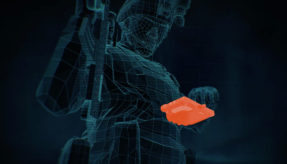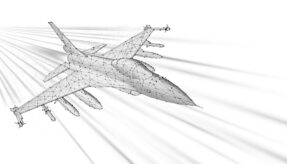
Lest we forget, 100 years on from the signing of the armistice in The Great War, it’s a week to remember heroes. However, in remembering World War I heroes, and those in other theatres of war, we tend to be thinking of those who paid the ultimate sacrifice.
Even today in modern conflict, as shown by the recently ended Invictus Games, heroism comes at a cost. Any caring person sees the need and responsibility to provide ‘Help for Heroes’.
The role of technology in frontline fighting has traditionally been aimed at shortening conflict by upping the rate of attrition to a level where the opposition capitulates. Whilst the tank was not singularly responsible for bringing about the end of The Great War, the fact that Britain and France produced 8,000 machines to the German’s 20 without doubt put an end to trench warfare, hastened surrender and reduced the level of human sacrifice.
Thankfully attrition has long gone out of fashion – modern warfare is smart and clinical. Yet even in the most fantastic science fiction scenarios of battles fought by robots, human kind eventually finds itself in the front line. Inevitably every front line will have its heroes.
The real job of technology, and technology companies associated with frontline logistics, is to reduce the risk of the need for heroism. We will never miss this chance to remember our heroes, but the more we reduce their number the more we can reduce personal sacrifice. In so doing, we not only reduce the human cost today, we reduce the very real cost of care and rehabilitation tomorrow.
The conundrum is to find tech kit that is deployable and fit for purpose today, flexible and ready to be repurposed tomorrow and rugged enough to go the distance. For the avoidance of doubt, it is better to prepare for the worst than hope for the best.
Getac manufactures benchmark rugged mobile devices and computers specified to military grade standards. It has also just produced an e-book entitled ‘In conflict. With technology.’ It can be downloaded free of charge by clicking here.
If you would like to join our community and read more articles like this then please click here.







